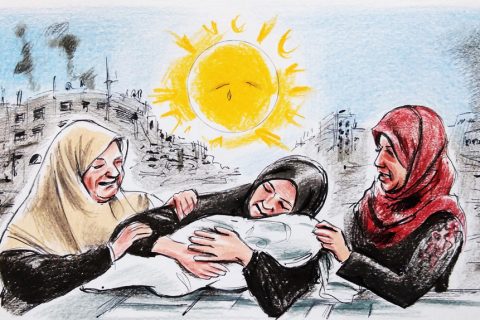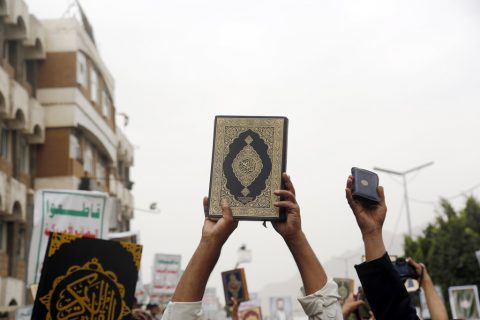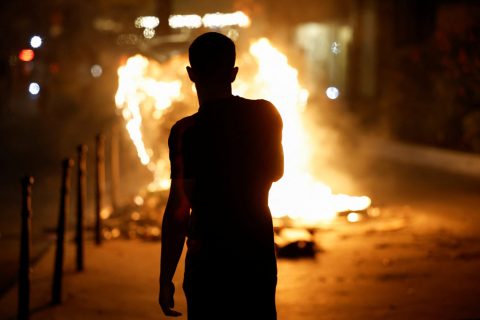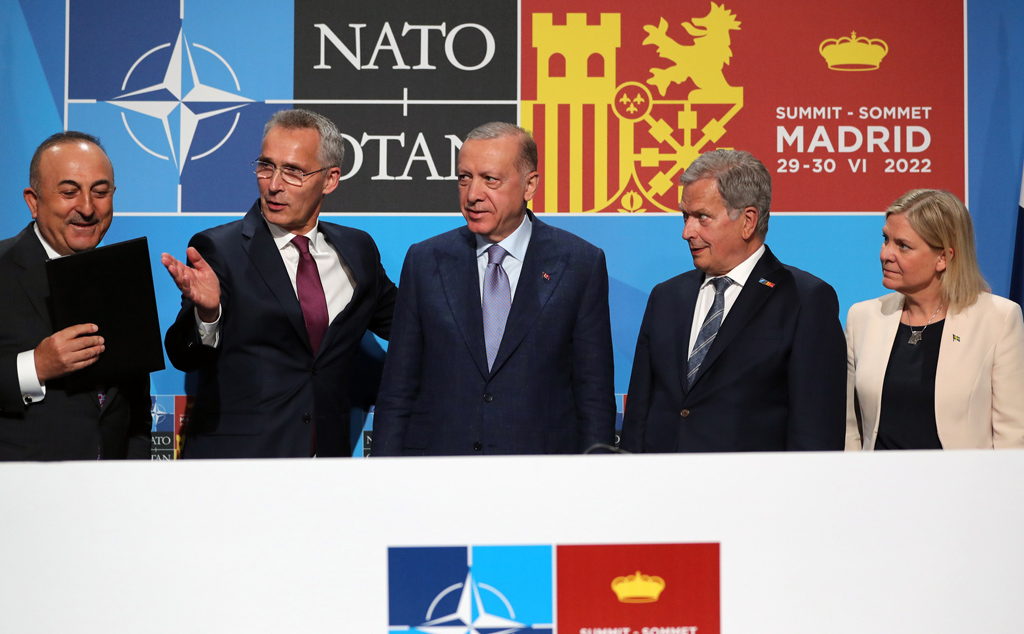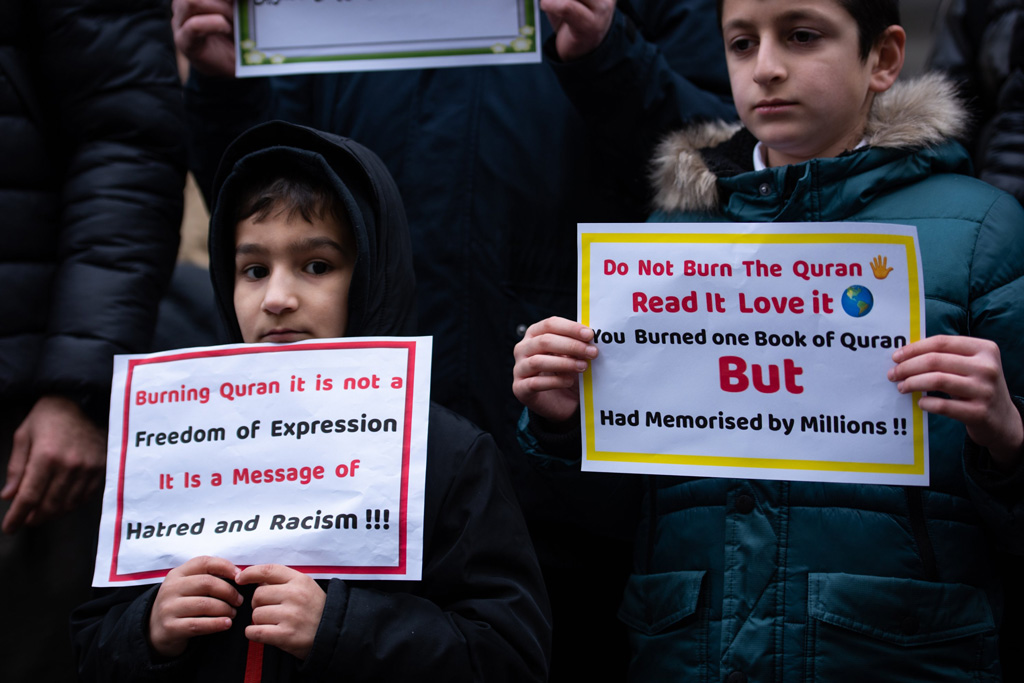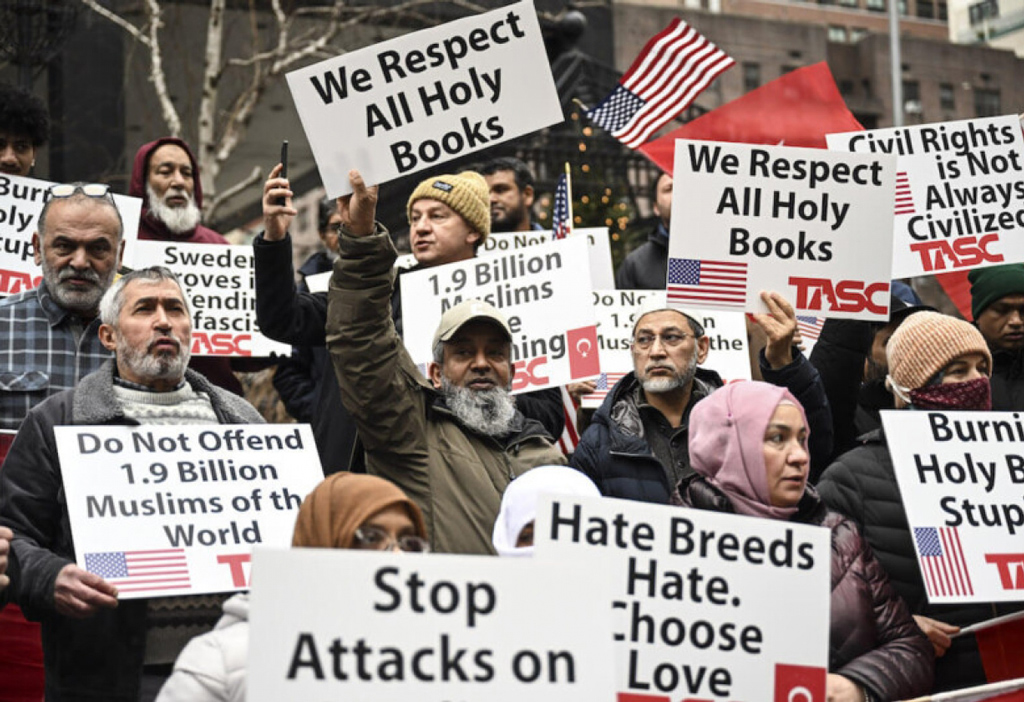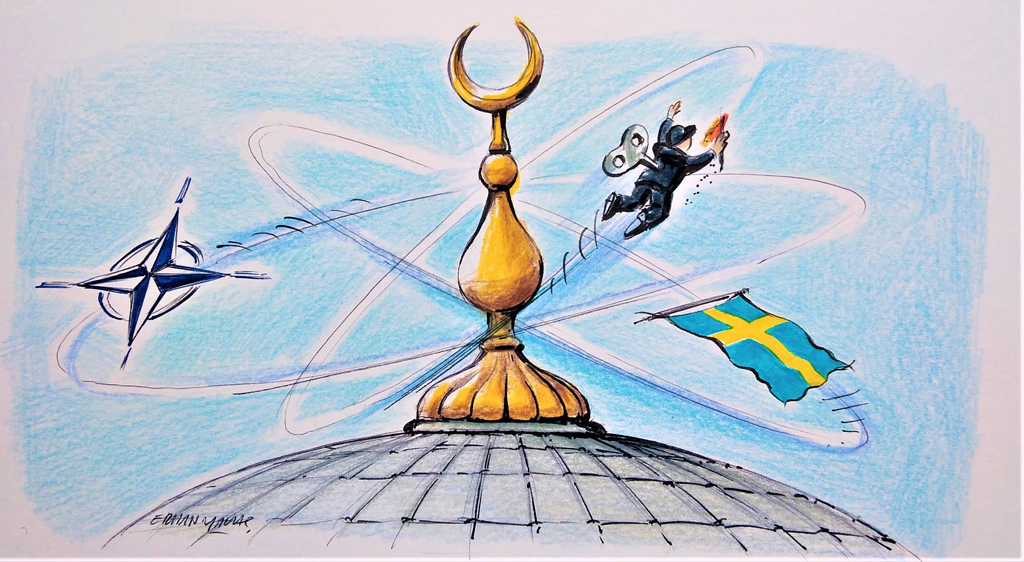Anti-Islam
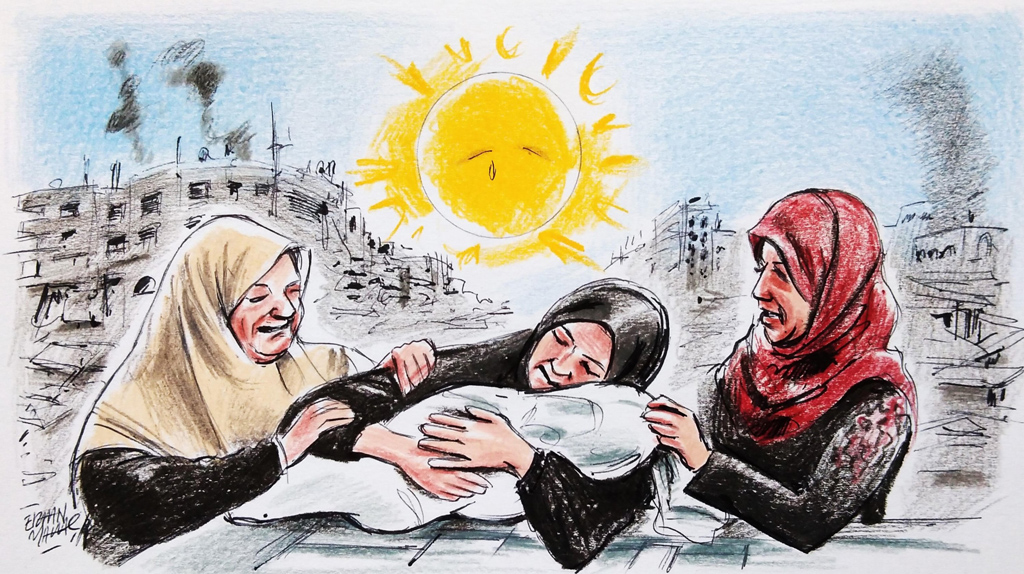
Ramadan, Gaza and anti-Islam sentiment
| OpinionFriday marked the fifth day of Ramadan. Unfortunately, there is still no cease-fire in Gaza, …
-
Opinion
Ramadan, Gaza and anti-Islam sentiment
By Burhanettin DuranFriday marked the fifth day of Ramadan. Unfortunately, there is still no cease-fire in Gaza, and Israel continues to kill Palestinians waiting for food supplies. Earlier this week, Israeli troops killed six Palestinians and injured 83 others as they waited in line to receive a bag of flour. That was not the first time, and it won’t be the last.
-
Opinion
Western attacks on Islam will backfire
By Muhittin AtamanWestern countries, including politicians, business circles, academia and media, have been insistently and deliberately otherizing and alienating Islam and Muslims for the last three decades. Immediately after the collapse of the Soviet Union, the end of the Cold War and the elimination of the communist threat, influential Western circles began to consider Islam and Muslims the main threat to the Western-dominated world hegemony.
-
Opinion
What’s really going on in France?
By Muhittin AtamanFrance has been facing violent mass protests in the wake of a recent police shooting. The killing of a 17-year-old boy named Nahel, who was of Algerian descent, by French police in Nanterre on June 27 has sparked outrage among the public. The tragic incident has been viewed as a violation of human rights, prompting widespread protests and riots across several cities in France. The response from the public has gone beyond solely addressing this particular incident, reflecting a broader concern over human rights violations and long-time discrimination faced by individuals of migrant origin, particularly those of African descent and Muslims.
Bu Konuda Daha Fazla
-
Truth Is a Human Right: Türkiye’s Stance on the...
By Fahrettin AltunWe are experiencing the rise of unprecedented opportunities as a result of the digital revolution, but regrettably this has also been accompanied by a number of novel threats. One of the most visible manifestations of these threats is the rapid spread of misinformation and disinformation. The implications of this threat extend from the individual to the national and international levels, where misinformation and disinformation bring the risk of hybrid warfare and power competition closer to home. Needless to say, the breadth of these implications makes dealing with digital misinformation even more difficult. This commentary focuses on several global events where misinformation and disinformation were used as a tactical tool, including the 2016 U.S. elections, Brexit, and COVID-19. Then, we discuss the situation involving Türkiye, one of the nations that serves as both a target and a focal point of regional disinformation campaigns. The commentary then shifts to some of the Communication Directorate's most significant initiatives, such as the creation of the Earthquake Disinformation Bulletins, the Law on the Fight Against Disinforma- tion, and the Center for Fight Against Disinformation. Finally, above all, this commentary aims to raise awareness of the dangers of online misinformation and urges international cooperation to ensure that the truth always prevails.
-
Sweden Must Face Its Commitments Instead of Instrumentalizing Anti-Turkish...
By Talha KöseSweden is unlikely to make any move that could play into President Erdogan’s hand ahead of Turkey’s upcoming elections.
-
Anti-Islam sentiment: Europe shooting itself in the foot
By Muhittin AtamanThe recent Quran burning has shown that European governments are sensitive about crimes committed against one religion, but not against another
-
What Goes Wrong With Sweden’s “Limitless” Freedom of Expression?
By Yücel AcerHow Rasmus Paludan could burn the Holy Qur’an as the Swedish police simply watched.
-
Türkiye’s place in NATO questioned amid provocations in Europe
By Burhanettin DuranIt is no secret that some Western governments have been unhappy with Ankara's autonomous foreign policy in recent years, so some have questioned Türkiye's NATO membership and policies
